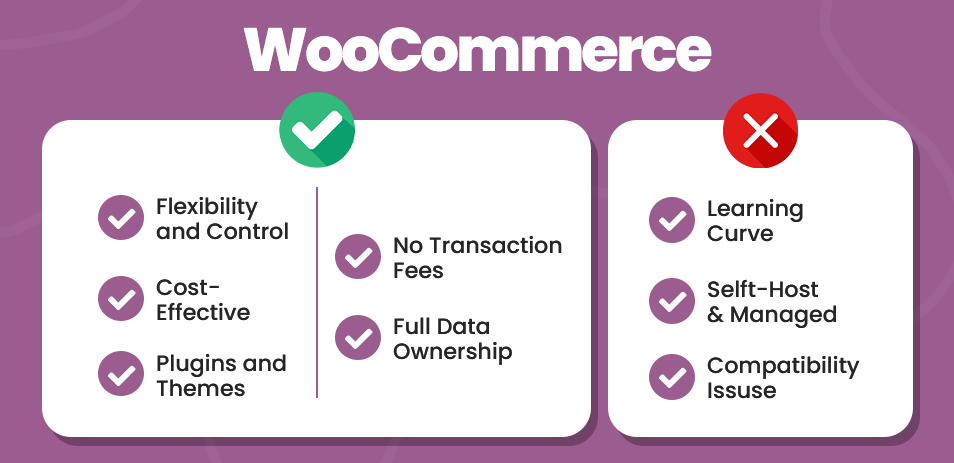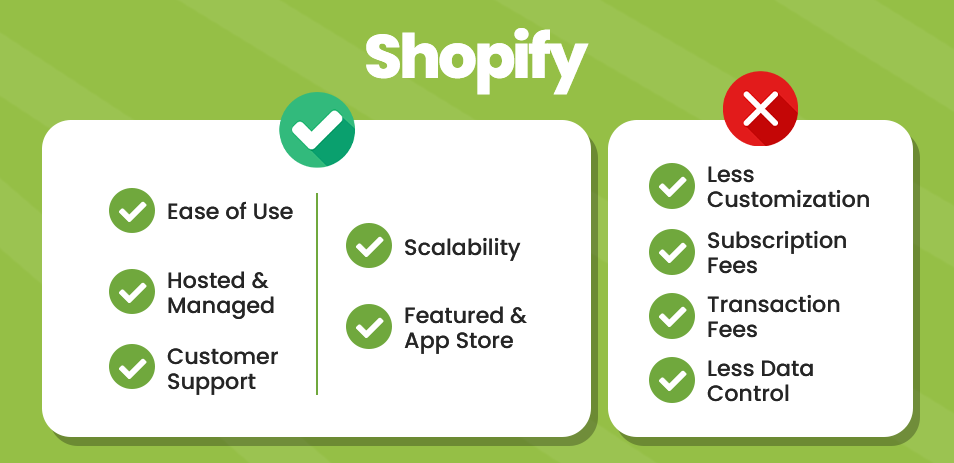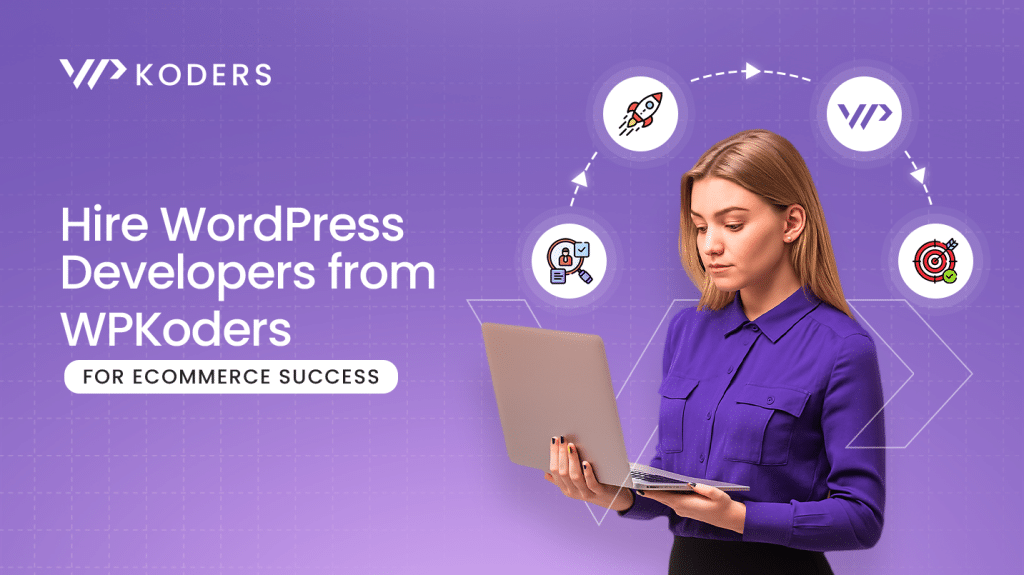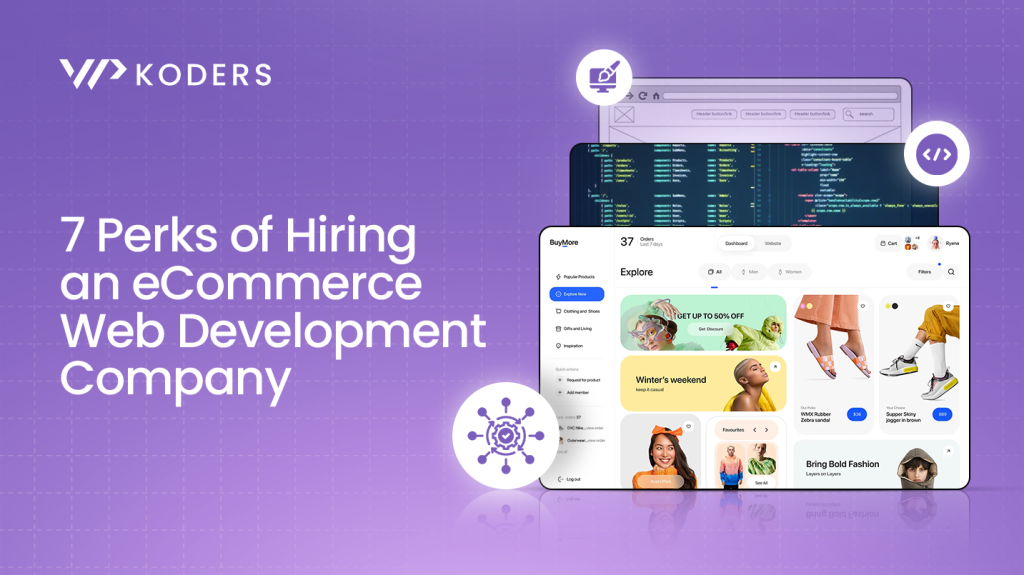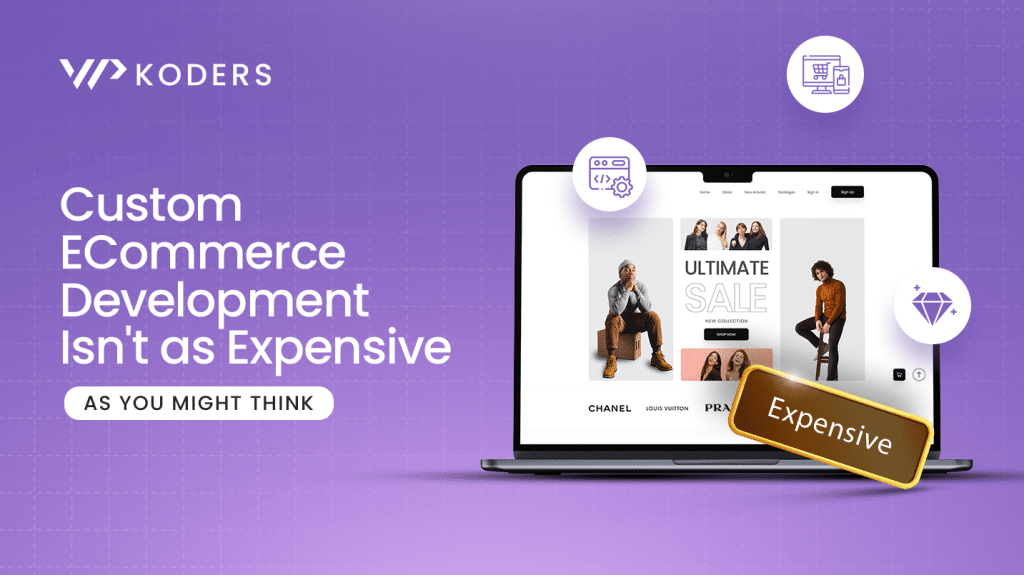Let’s dive into the eCommerce arena and put two giants against each other: WooCommerce vs Shopify. If you’re dreaming of setting up a shop online, you’ve likely stumbled upon these two names. They’re the big players, each with its strengths and quirks. So, which one should you choose to bring your entrepreneurial vision to life? Let’s break it down in a way that’s easy to grasp without getting lost in technical jargon.
Think of it like choosing a location for your brick-and-mortar store. On one hand your store exists in a bustling marketplace, offering endless customization but requires managing utilities. While on the other, it is in a well-organized mall with less flexibility but handles a lot of the groundwork for you. That’s the essence of the WooCommerce vs Shopify debate, which WPKoders simplifies in this writing.

WooCommerce – The Open-Source Powerhouse
Imagine having the keys to a highly customizable workshop; that’s what WooCommerce offers. It’s not a standalone platform but rather a WodPress plugin that transforms your existing website into a fully functional online store.
Pros of WooCommerce
Ultimate Flexibility and Control
Because it’s built on WordPress, the possibilities for customization are virtually limitless. You have complete control over your store’s design, functionality, and the underlying code if you’re tech-savvy (or have a developer). Think of it as building your store with LEGO bricks – you can create almost anything you can imagine.
Cost-Effective
The WooCommerce plugin itself is free! It can be a major pull for those just starting out or on a tight budget. However, keep in mind that you’ll likely need to factor in costs for other aspects. They include hosting, a domain name, security certificates (SSL), and potentially premium themes and other plugins to enhance functionality.
Vast Ecosystem of Plugins and Themes
The WordPress and WooCommerce communities are massive, meaning there’s a plugin for almost every imaginable feature. From cutting-edge SEO tools to intricate marketing automation, everything is available in marketplaces. You also have a wide array of themes to choose from, allowing you to create a unique and branded storefront.
No Transaction Fees
Unlike some platforms, WooCommerce doesn’t typically charge transaction fees on your sales, which can save you a significant amount as your business grows.
Full Data Ownership
You own all your store’s data, giving you complete control over it and how you use it for marketing and analysis.
Cons of WooCommerce
Steeper Learning Curve
With great power comes great responsibility (and complexity too). Managing a WooCommerce store requires more technical know-how than some other platforms. You’ll be responsible for updates, security, and troubleshooting.
Self-Hosted and Managed
You’re in charge of finding and managing your web hosting, ensuring your site is secure, and handling backups. It can be daunting for beginners.
Potential for Compatibility Issues
With so many plugins and themes available, there’s always a chance of conflicts arising between them, requiring time and effort to resolve.
Shopify – The All-in-One Solution
Now, picture stepping into a fully equipped and managed store in a high-traffic mall. Shopify provides that experience. A dedicated eCommerce platform that handles all the technical aspects for you, from hosting to security.
Pros of Shopify
Ease of Use
Shopify is renowned for its user-friendly interface. Setting up your store is straightforward, even for those with limited technical skills. It’s designed to get you selling quickly and efficiently.
Fully Hosted and Managed
Shopify takes care of all the technical heavy lifting, including hosting, security, and software updates. It allows you to focus on running your store rather than managing server configurations.
Excellent Customer Support
Shopify offers robust 24/7 customer support through various channels, providing valuable assistance when you need it.
Scalability
It is built to handle businesses of all sizes, from small startups to large enterprises. Its infrastructure can scale with your growth.
Integrated Features and App Store
It comes with a good set of built-in features, and its app store offers a wide range of extensions to add more functionality to your store.
Cons of Shopify
Less Customization
While Shopify offers themes and an app store, deep customization beyond these options requires knowledge of their Liquid coding language. It can limit your design flexibility compared to WooCommerce’s open-source nature.
Monthly Subscription Fees
Shopify operates on a subscription-based model, meaning you’ll have recurring monthly fees, which can add up over time.
Transaction Fees (as per Plan)
Unless you use Shopify Payments, you’ll incur transaction fees on each sale in addition to the processing fees charged by your chosen payment provider.
Less Control Over Data
While you have access to your data, Shopify controls the underlying infrastructure and its management.
WooCommerce vs Shopify: Which One is Your Perfect Fit?
The “better” platform truly depends on your specific needs, technical skills, and business goals.
Choose WooCommerce if:
- You already have a WordPress website or are comfortable with the platform.
- You desire complete control and extensive customization options.
- You have the technical skills, or are willing to hire someone with those skills to manage your store.
- You prefer to avoid ongoing transaction fees (if you use payment gateways other than their own).
- You value full ownership of your data and platform.
Choose Shopify if:
- You prioritize ease of use and a quick setup process.
- You prefer an all-in-one platform that handles the technical aspects for you.
- You value reliable customer support.
- You are comfortable with monthly subscription fees and potential transaction fees.
- You don’t require highly advanced or unique customization beyond what their themes and apps offer.
WPKoders – The Best eCommerce Agency for WordPress Plugins
We believe in enabling the developers community with the right tools to serve business owners with an edge. Our solutions and services aim at improving your development timeline, optimizing store profitability, and delivering user convenience. Here’s how our products augment product visibility, increase your AOV, and aid in policy compliance:
Pricing Strategy
A comprehensive pricing strategy is crucial for turning visitors into clients, demading strategic pricing mechanisms. Competitive, value based, and demand-driven pricing can turn your store from a retail shop into an eCommerce giant. Our Hide Prices and Remove add to Cart Button plugin permits you to implement diverse price disclosure mechanisms with ease.
Sales Strategy
A good sales strategy boosts your eCommerce revenue by increasing your store’s client base, AOV, and revisits. Marketing automation tools, attractive offers, and enticing visuals achieve this goal by bringing more clients and selling more goods. Multistep Product Bundles is a great choice for storeowners that helps in increasing their AOV for maximum profitability.
Compliance Management
Compliance management is more of an obligation than a choice. Be it the rules and regulations by a federal agency or your store’s checkout policy, effective control is inevitable. Even if supply disruptions or undesirable orders bother you, Restrict Checkout plugin can handle it effectively. It allows you to create rulesets based on quantity, cart total, products, countries, and more.
Conclusion
Both WooCommerce and Shopify are powerful platforms that can help you build a successful online store. WooCommerce offers unparalleled flexibility and control but demands more technical involvement. Shopify provides a simple, user-friendly experience with robust support but offers less inherent customization and involves recurring fees.
Take a good look at your resources, technical comfort level, and long-term vision for your eCommerce business. The right choice empowers you to focus on what truly matters: connecting with your customers and selling your amazing products. Get in touch with WPKoders support for more information or source reliable WooCommerce plugins for store optimization. Happy selling!

